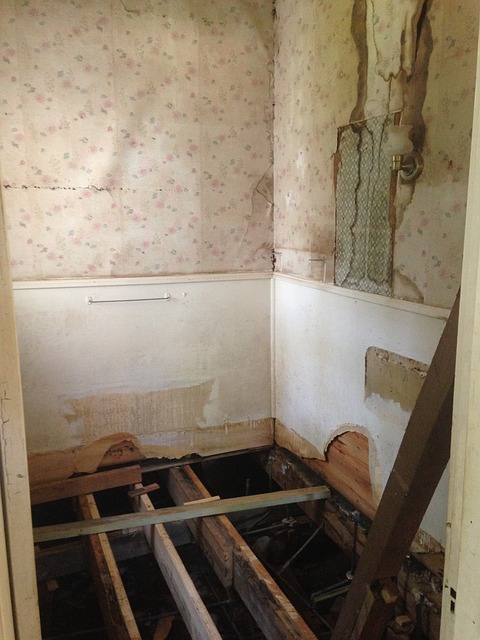Union members in Bergen County face unique addiction challenges due to physically demanding jobs and long hours, leading to high stress levels. Specialized union worker rehab programs are crucial for addressing these issues. These programs offer tailored support, flexible scheduling, and confidential counseling through Employee Assistance Programs (EAPs) designed for blue-collar workers. They provide comprehensive assessments, specialized therapy, peer support, and aftercare services to ensure long-term recovery for union members in a trustworthy and community-oriented environment.
“Bergen County’s specialized addiction recovery programs play a pivotal role in supporting union members and trade workers on their path to recovery. This demographic faces unique challenges, often stemming from high-stress work environments and camaraderie cultures, which can contribute to substance abuse. The article delves into these issues, highlighting the significance of tailored rehab programs for union worker rehab. We explore key components, support systems, and aftercare options that foster sustained recovery, offering a comprehensive guide to effective union worker rehab.”
- Understanding the Unique Challenges of Union Workers and Trade Workers in Bergen County
- The Importance of Specialized Addiction Recovery Programs for This Demographic
- Key Components of Effective Union Worker Rehab
- Support Systems and Aftercare Options for Sustained Recovery
Understanding the Unique Challenges of Union Workers and Trade Workers in Bergen County

Union members and trade workers in Bergen County often face unique challenges when it comes to addiction and recovery. The demanding nature of their jobs, which typically involve physical labor and long hours, can contribute to high stress levels and potential substance abuse. Additionally, the structured support systems within unions and the camaraderie among blue-collar workers may inadvertently encourage risky behaviors or make seeking help more complex. These factors create a need for specialized union worker rehab programs tailored to address their specific issues.
The traditional approach to addiction treatment might not always resonate with the unique cultural dynamics of these communities. That’s why EAP programs (Employee Assistance Programs) focused on blue-collar recovery are gaining recognition as effective solutions. These programs understand and incorporate the social fabric of unionized workplaces, providing confidential support and specialized care to help members navigate their path to recovery without fear of stigma or repercussions at work.
The Importance of Specialized Addiction Recovery Programs for This Demographic

In Bergen County, specialized addiction recovery programs tailored for union members and trade workers are more than just a luxury—they’re an essential component of supporting this unique demographic. Union worker rehab facilities understand the specific challenges faced by those in labor unions and blue-collar industries. These challenges often include high-stress work environments, irregular schedules, and physical demands that can contribute to substance abuse and mental health issues. Specialized programs address these nuances, offering tailored support that considers the cultural and practical aspects of their lives.
By providing union addiction support, EAP programs (Employee Assistance Programs), and blue-collar recovery options, these facilities create a safe space for workers to heal. They recognize the importance of confidentiality in fostering trust among trade workers who might be hesitant to seek help due to concerns about privacy or job security. These programs also offer flexible scheduling and comprehensive aftercare services to accommodate the demanding lifestyles of union members and ensure long-term success in their recovery journeys.
Key Components of Effective Union Worker Rehab

Effective union worker rehab programs are tailored to address the unique challenges faced by trade workers and union members in Bergen County. Key components include a comprehensive assessment of physical and mental health, considering the impact of job-related stress and exposure to trauma. These programs often incorporate specialized therapy modalities such as cognitive-behavioral therapy (CBT) and mindfulness practices, which have proven successful in managing addiction and promoting long-term recovery.
Support from peers and colleagues plays a pivotal role in union worker rehab. Many programs facilitate group therapy sessions and peer support groups, fostering a sense of community and camaraderie among participants. Additionally, integrating Employee Assistance Programs (EAPs) into the recovery process offers valuable resources for blue-collar workers, providing confidential counseling and other benefits to aid their journey towards sobriety and improved well-being.
Support Systems and Aftercare Options for Sustained Recovery

For many union members and trade workers navigating addiction recovery, having a robust support system is essential for long-term success. These individuals often benefit from peer support groups tailored to their unique experiences as blue collar workers. Such groups provide a sense of community, fostering an environment where they can share their struggles and celebrate milestones together. Additionally, aftercare services play a crucial role in ensuring a smooth transition back into daily life. Many union addiction support programs offer ongoing counseling, employment assistance, and access to EAP (Employee Assistance Programs) for continued mental health management. These comprehensive aftercare options are designed to help workers maintain their sobriety while reintegrating into their professional and personal lives.
In conclusion, specialized addiction recovery programs tailored for union members and trade workers in Bergen County are essential to addressing their unique challenges. By incorporating industry-specific knowledge and peer support, these programs can significantly enhance the effectiveness of rehabilitation. Key components such as comprehensive counseling, vocational reintegration, and robust aftercare networks contribute to sustained recovery. Understanding and meeting the specific needs of this demographic through tailored union worker rehab is crucial in supporting individuals on their path to long-term sobriety.






